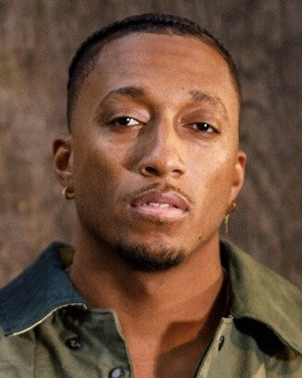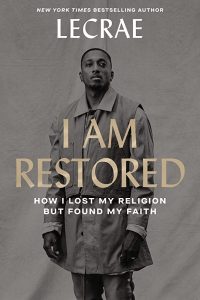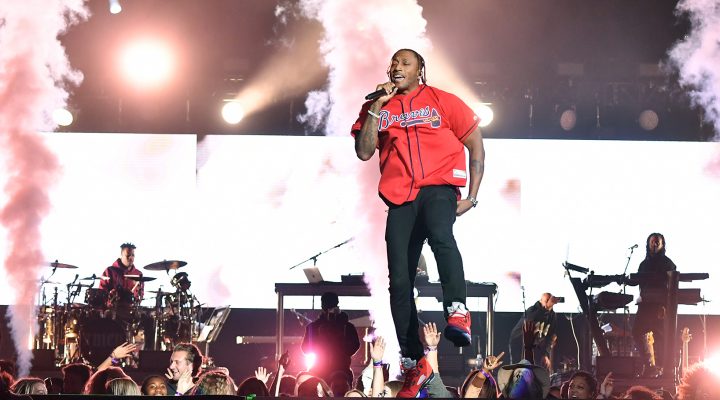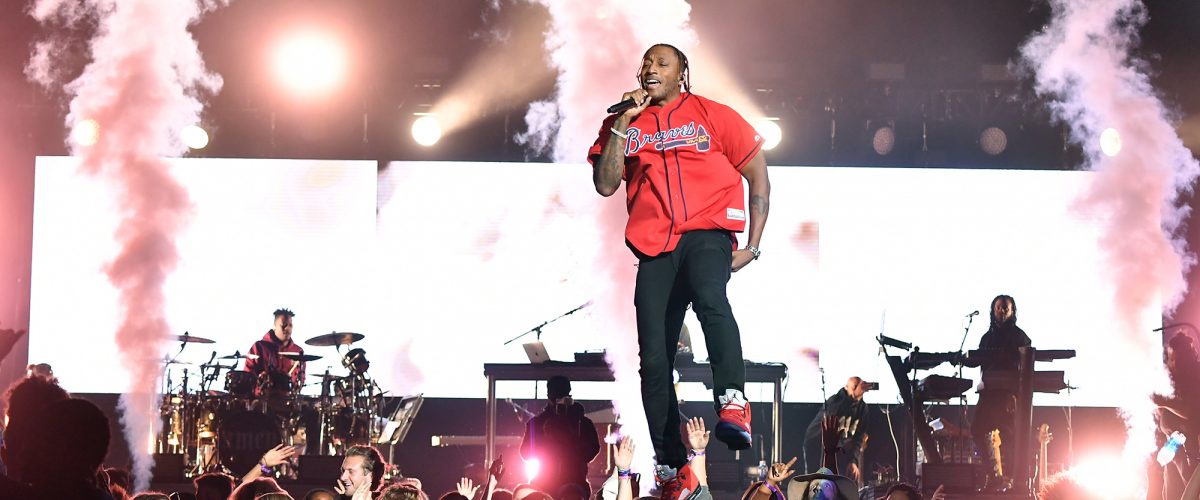As America prepares to celebrate the 50th anniversary of hip-hop, one artist stands out as a crossover between the secular and the sacred.
Lecrae has risen to the forefront in both genres. And the reason for his success may be found in one word: vulnerability.
“It’s extremely important, specifically within the Black and brown community, to know that we’re not alone,” he said in an exclusive interview with BNG.

Lecrae
Lecrae said his own vulnerability is borne out of a need to be true to God and the audience that God has entrusted to him.
If you listen to hip-hop, you’ll understand its artists have no choice but to be authentic with their audiences, he explained. That’s why he’s spoken openly about his mental health and his relationship with his biological father.
Recently, Lecrae and Gospel artist Tasha Cobb teamed together to highlight the need for mental health.
“Tasha and I have similar taste in music and we’re both fans of each other, so we had to find something to do together,” he said. “Releasing a song together in support of seeking mental health was a must for us. Tasha and I are both very transparent about our mental health and about how God has helped us navigate through that process. I’m thankful the project worked out.
Lecrae admits he also has “very deep father wounds.”
“The more vulnerable and transparent I am, the more I am walking in the reality that I’m secure.”
“Because of that, people like myself tend to overcompensate by showing people how amazing we are and look how wonderful I’m doing because my dad never said it. I have to show off my scars so I can say it is not the affirmation of other people that makes me be who I am, that give me identity, value, worth and purpose. The more vulnerable and transparent I am, the more I am walking in the reality that I’m secure.
“My scars showed wounded people that their scars and their wounds will heal. You know, sometimes you need to be reminded that your wounds are not going to last forever and that they’ll become scars. And Jesus didn’t hide his scars, he still has those marks to this very day.”
 Today, vulnerability and scars fuel the creative side of his music. And the example of his mother, who always kept music playing in their home as he grew up.
Today, vulnerability and scars fuel the creative side of his music. And the example of his mother, who always kept music playing in their home as he grew up.
In his experience, writer’s block “is really just a lack of honesty,” he said. “If you’re honest, you’ll write about where you are at that very moment.”
“You have to be a risk taker. That’s really what it comes down to. I have a natural propensity for taking risks, which has caused me some problems. So, it comes with its own fair share of problems. Taking risks is how you grow. You’ve got to stretch yourself and do things you otherwise would not do in order to grow, in order to take a chance, in order to see will it work, or it may not work.”
His fans see his success but don’t see “all the things I’ve attempted that didn’t pan out — because I’ve tried so many things. These are the things that did pan out, but they wouldn’t have happened had I not taken those risks. Sometimes you just have to jump.”



